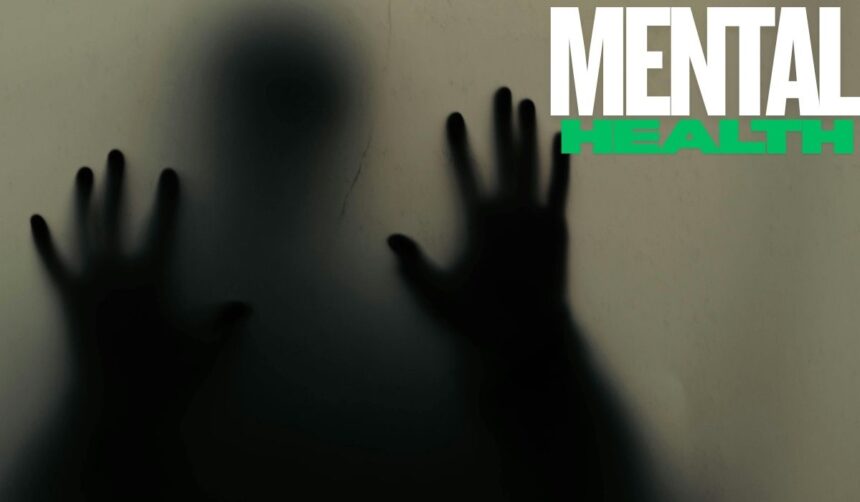Discover how excessive screen time impacts your mental health. Learn about the negative effects on sleep, mood, and social connections, and explore the benefits of a digital detox for improved well-being.
Digital Detox: How Too Much Screen Time Affects Your Mental Health
In our increasingly connected world, screens have become an almost constant presence, from smartphones and tablets to computers and televisions. While these devices offer undeniable benefits for communication, information, and entertainment, excessive screen time can significantly impact your mental health. Understanding these effects is the first step toward finding a healthier balance and embracing the benefits of a digital detox.
The Unseen Toll: How Excessive Screen Time Impacts Mental Health
The allure of endless scrolling, constant notifications, and immersive digital worlds can subtly erode our well-being. Research highlights several key ways that too much screen time can negatively affect your mental health:
- Increased Risk of Mood Disorders: Studies have shown a correlation between increased screen time and higher levels of depression, anxiety, and other mood disorders, particularly among young people. As reported by The University of Edinburgh, teenagers whose screen time increased as they went through adolescence were more likely to experience depression, anxiety, or self-harm later on. Similarly, Yale School of Medicine noted a direct correlation between time spent on digital technology and the likelihood of developing depression and anxiety in children.
- Disrupted Sleep Patterns: The blue light emitted by screens can interfere with the body’s natural production of melatonin, the hormone that helps regulate sleep. Staring at screens, especially before bedtime, can trick your brain into thinking it’s still daytime, making it harder to fall asleep and reducing the quality of your sleep. As highlighted by The Ohio State University Wexner Medical Center, chronic sleep deprivation, often linked to screen use, can lead to distractedness, memory problems, and contribute to depression and anxiety.
- Reduced Focus and Cognitive Impairment: Constant digital stimulation can lead to a state of “cognitive overload,” making it harder for your brain to focus on a single task or engage in deeper, more creative thinking. This fragmented attention can manifest as “brain fog” or difficulty concentrating, as described by experts.
- Social Comparison and Low Self-Esteem: Social media platforms often present idealized versions of reality, leading to upward social comparison. Constantly seeing curated lives can foster feelings of inadequacy, envy, and lower self-esteem, particularly among adolescents. Adventist Health notes that approximately 1 in 3 girls report feeling bad about their bodies at least once a week when using platforms like TikTok, Instagram, and Snapchat.
- Fear of Missing Out (FOMO) and Social Isolation: While screens promise connection, excessive reliance on online interactions can ironically lead to feelings of isolation and a fear of missing out on social events or trends. This can create a cycle where individuals feel compelled to stay online, further exacerbating feelings of anxiety and detachment from real-world connections.
- Addictive Patterns: Screen use can trigger the release of dopamine in the brain, creating a pleasure-reward cycle. This can lead to compulsive behaviors and a strong urge to constantly check devices, akin to addictive responses, as discussed by Premier Health.
The Benefits of a Digital Detox
A digital detox, a deliberate and temporary break from digital devices and online platforms, offers a powerful antidote to these negative effects. This intentional disconnection can significantly improve your mental health and overall well-being.
Key Benefits of Unplugging:
- Improved Mental Well-being: A digital detox can lead to lower levels of stress, depression, and anxiety, and can significantly reduce depressive symptoms, according to a 2024 review cited by Medical News Today. It provides space for greater self-regulation and emotional control.
- Better Sleep Quality: By reducing exposure to blue light, especially before bed, a digital detox helps regulate melatonin production, leading to improved sleep duration and quality. Healthline indicates that avoiding devices before bed can lead to better sleep.
- Enhanced Focus and Productivity: Without constant notifications and distractions, your brain can recharge and concentrate more effectively. This can lead to increased productivity and creativity, as highlighted by Power Living and Fortis Healthcare.
- Stronger Real-World Connections: Disconnecting from screens opens up opportunities for more meaningful face-to-face interactions, fostering deeper relationships and a greater sense of belonging. Cleveland Clinic Health Essentials emphasizes that eliminating digital distractions creates more opportunities to pay attention to those around you.
- Increased Self-Awareness and Mindfulness: A digital detox encourages introspection and a greater awareness of your surroundings. It allows you to be more present in the moment and engage with hobbies or activities you might have put off due to screen time.
- Reduced Comparison and Improved Self-Esteem: Stepping away from curated online lives can help reduce the tendency to compare yourself to others, fostering a healthier body image and boosting self-esteem.
Embracing a Healthier Digital Balance
A digital detox doesn’t necessarily mean abandoning technology entirely. Instead, it’s about finding a balanced and intentional relationship with your devices. Strategies can include setting specific “no-screen” times, creating tech-free zones in your home, turning off unnecessary notifications, or engaging in alternative hobbies. By being mindful of your screen habits and actively seeking periods of disconnection, you can significantly enhance your mental health and reclaim valuable time for activities that truly nourish your mind and soul.
READMOREFROM:MY MEDI PLUG
